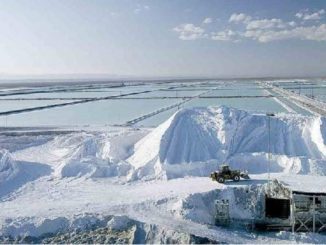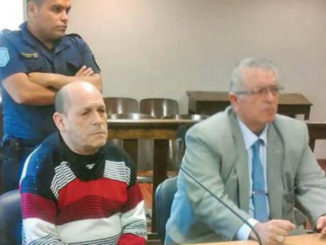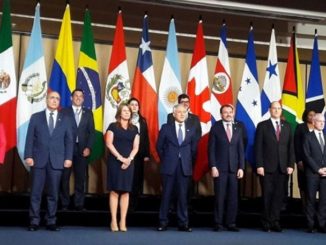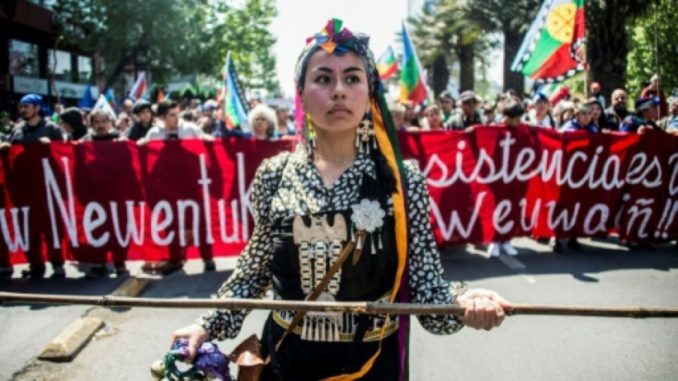
SANTIAGO – Thousands of people marched in Santiago de Chile in honor of the resistance of the indigenous Mapuche people, demanding the “liberation of indigenous political prisoners”, the end of abuse and the return of expropriated ancestral lands”.
The march, which began in the central Plaza Italia, forced the authorities to cut traffic on the Alameda, the main avenue in the capital.
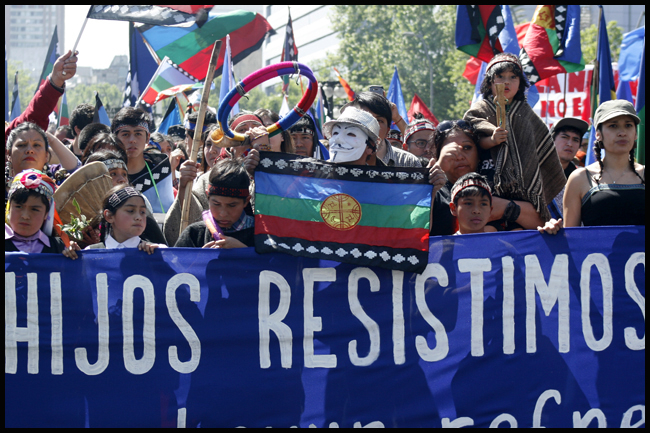
This mobilization is organized annually by various Mapuche organizations in the southern Araucanía region. People of all ages attended, many of whom carried Mapuche flags, traditional instruments and typical clothing of this indigenous group.
‘Jungle Command’: Piñera creates special force to tackle ‘terrorism’ in southern Chile
An agent was injured and several protesters were detained after confrontations the hooded demonstrators and the Special Forces of Carabineros.
Carabineros dispersa a encapuchados en marcha por la “resistencia mapuche” en Santa Rosa @adnradiochile pic.twitter.com/6lO9FrRBNg
— Axel Troncoso (शेर) (@Axel_Troncoso) October 14, 2018
One of the most repeated slogans by the demonstrators was “to free the Mapuche to fight”, in reference to the imprisoned Indians, for the most part, for being accused of arson attack on logging trucks and churches in protest against the State and the forestry and agricultural companies that operate in their native places.
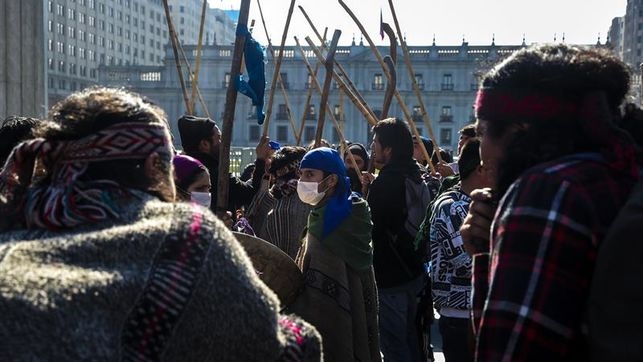
The face of one of them, that of the machi (Mapuche shaman) Celestino Córdoba, was present throughout the mobilization, both on posters and on large banners.
The shaman is one of the four convicted of the crime of the marriage of farmers Werner Luchsinger and Vivianne Mackay, who died on January 3, 2013, when hooded men attacked his house, located not far from the Mapuche community, with fire and incendiary bombs. which belongs to Cordova.
Piñera announces $24m investment for indigenous region in Chile’s south
Around 600,000 Mapuche live in Chile, many in the forested, hilly provinces of Araucania and Bio Bio, roughly 400 miles (640 km) south of Santiago. The Mapuche accuse the state and private companies of taking their ancestral land, draining its natural resources, and using undue violence against them. Their communities are among the poorest in Chile.

